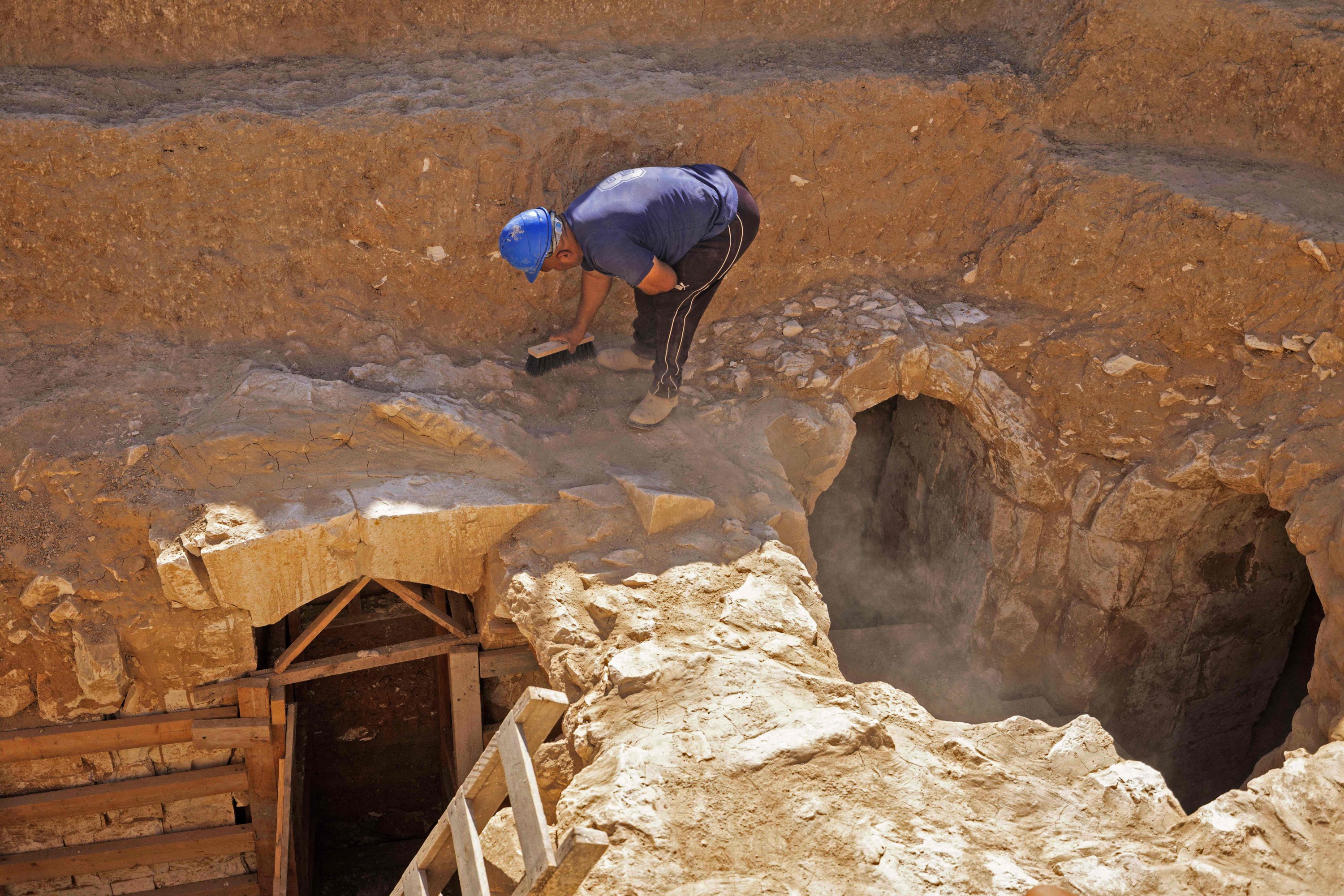© Turkuvaz Haberleşme ve Yayıncılık 2026
Israeli archeologists discovered a 1,200-year-old mansion that is thought to belong to the early Islamic period in Israel's Negev region, unearthing the wealthy life of the former residents.
The discovery in the Bedouin town of Rahat dates to the early Islamic period in the eighth or ninth century, the authority said.
Described as a "luxurious rural estate" by the Israel Antiquities Authority (IAA), the home boasted a marble-paved hallway and walls decorated with frescoes. One lavish section features elaborate wall decorations. Archaeologists also found shards of decorated glass serving dishes.
The first building of its kind to be found in the southern Negev desert, according to the IAA, it contained vaulted rooms around a central courtyard.
Underneath the courtyard, archaeologists were surprised to discover subterranean vaults made of stone, which they believe were used to store items at cooler temperatures away from the scorching desert sun. The vaults appear to be carefully constructed and sturdy enough to allow people to move between them underground. An opening from the vaulted rooms also leads to a cistern where residents could access cool drinking water.
The remains of oil lamps were unearthed in storage rooms underground, along with a cistern.
"The luxurious estate and the unique impressive underground vaults are evidence of the owners' means," said a statement from the archaeologists leading the excavations, Oren Shmueli, Elena Kogan-Zehavi and Noe D. Michael.
"Their high status and wealth allowed them to build a luxurious mansion that served as a residence and for entertaining," the statement added.
The site is due to be opened to the public on Thursday.

The estate is close to a rare mosque dating back to the same period, which Israeli archaeologists unveiled in June. A few dozens of Muslims likely worshipped at the site at one time, the IAA said.
The Muslim conquest of the region occurred in the first half of the seventh century.
